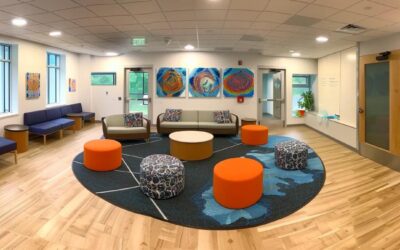Understanding Addiction Recovery in MA
Addiction recovery in Massachusetts is a critical concern, with numerous individuals seeking support to overcome substance use disorders. The state offers a wide array of treatment options, recognizing the diverse needs of those battling addiction. Massachusetts is home to various specialized centers, including the Strength Recovery Center in Weymouth, MA, which provides comprehensive addiction treatment services. These facilities are dedicated to offering personalized care, focusing on both the physical and psychological aspects of addiction. With an emphasis on individualized treatment plans, recovery centers in Massachusetts aim to address the unique challenges each person faces on their journey to sobriety.
The complexity of addiction requires a multifaceted approach to recovery. In Massachusetts, recovery programs often integrate evidence-based therapies, such as Cognitive Behavioral Therapy (CBT) and Dialectical Behavior Therapy (DBT), to help individuals develop healthier coping mechanisms. Centers like the Strength Recovery Center in Weymouth, MA, also focus on dual diagnosis treatment, addressing co-occurring mental health disorders alongside addiction. This holistic approach ensures that individuals receive comprehensive care, targeting the root causes of addiction and fostering long-term recovery.
Massachusetts’ commitment to addiction recovery is evident in the variety of treatment options available, from inpatient and outpatient programs to medication-assisted treatment (MAT) and support groups. Each program is designed to cater to different levels of care, providing a continuum of support that adapts to the evolving needs of individuals in recovery. By offering a diverse range of services, Massachusetts aims to empower individuals to reclaim their lives and achieve lasting sobriety.
Key Features of Effective Recovery Programs

Effective addiction recovery programs in Massachusetts share several key features that contribute to their success. A personalized treatment plan is paramount, as it addresses the specific needs and circumstances of each individual. At the Strength Recovery Center in Weymouth, MA, clients benefit from tailored recovery plans that incorporate evidence-based therapies and holistic healing practices. This personalized approach ensures that individuals receive the appropriate level of care and support, maximizing their chances of achieving long-term recovery.
Another critical feature of successful recovery programs is the integration of dual diagnosis treatment. Many individuals struggling with addiction also face co-occurring mental health disorders, such as anxiety, depression, or PTSD. Addressing these issues concurrently is essential for effective recovery. The Strength Recovery Center in Weymouth, MA, specializes in dual diagnosis treatment, offering comprehensive care that targets both addiction and mental health challenges. By providing integrated treatment, recovery programs can help individuals develop healthier coping strategies and reduce the risk of relapse.
Supportive environments and community involvement are also crucial components of effective recovery programs. In Massachusetts, recovery centers like the Strength Recovery Center foster a sense of community, encouraging individuals to connect with others who share similar experiences. This sense of belonging and mutual support can be a powerful motivator in the recovery process. By building strong support networks, individuals are better equipped to navigate the challenges of recovery and maintain their sobriety over the long term.
Inpatient vs. Outpatient: Which Is Right for You?
Choosing between inpatient and outpatient addiction treatment in Massachusetts depends on several factors, including the severity of the addiction, personal circumstances, and individual preferences. Inpatient treatment, also known as residential treatment, provides a highly structured environment where individuals can focus entirely on their recovery. This option is ideal for those who require intensive support and 24-hour supervision. While the Strength Recovery Center in Weymouth, MA, does not offer inpatient services, it can refer clients to reputable facilities for this level of care.
Outpatient treatment, on the other hand, offers more flexibility, allowing individuals to continue their daily responsibilities while receiving care. Programs like the Full Day Addiction Treatment (PHP) and Half Day Addiction Treatment (IOP) at the Strength Recovery Center in Weymouth, MA, provide structured support without the need for overnight stays. These programs are suitable for individuals who have completed inpatient treatment or those with less severe addictions. Outpatient treatment enables clients to apply their recovery skills in real-world settings, promoting long-term sobriety.
Ultimately, the decision between inpatient and outpatient treatment should be based on a thorough assessment of an individual’s needs and circumstances. Consulting with addiction specialists and considering factors such as the availability of support networks and personal commitments can help determine the best path to recovery. Regardless of the choice, both inpatient and outpatient programs in Massachusetts offer valuable resources and support to aid individuals on their journey to sobriety.
The Role of Therapy in Addiction Recovery

Therapy plays a pivotal role in addiction recovery, providing individuals with the tools and strategies needed to overcome substance use disorders. In Massachusetts, recovery centers like the Strength Recovery Center in Weymouth, MA, offer a variety of therapeutic approaches to address the complex nature of addiction. Cognitive Behavioral Therapy (CBT) is a widely used method that helps individuals identify and change negative thought patterns and behaviors associated with addiction. By fostering healthier coping mechanisms, CBT empowers individuals to manage triggers and reduce the risk of relapse.
Dialectical Behavior Therapy (DBT) is another effective therapeutic approach used in addiction recovery. This method focuses on emotional regulation and interpersonal skills, helping individuals navigate the challenges of recovery with greater resilience. At the Strength Recovery Center in Weymouth, MA, clients benefit from DBT’s emphasis on mindfulness and stress management, which are crucial for maintaining sobriety. By addressing both emotional and behavioral aspects of addiction, therapy provides a comprehensive foundation for recovery.
Therapy also plays a critical role in addressing co-occurring mental health disorders, which are often intertwined with addiction. Dual diagnosis treatment is essential for individuals who struggle with both substance use and mental health issues. By integrating therapy into recovery plans, centers like the Strength Recovery Center in Weymouth, MA, ensure that clients receive holistic care that targets all aspects of their well-being. This comprehensive approach not only supports recovery but also enhances overall quality of life.
Support Groups: Finding Community and Strength
Support groups are an invaluable resource in addiction recovery, offering individuals a sense of community and strength as they navigate the challenges of sobriety. In Massachusetts, support groups like Alcoholics Anonymous (AA) and Narcotics Anonymous (NA) provide a platform for individuals to share their experiences and learn from others who have faced similar struggles. These groups foster a sense of belonging and mutual support, which can be instrumental in maintaining long-term recovery.
At the Strength Recovery Center in Weymouth, MA, clients are encouraged to participate in support groups as part of their recovery journey. These groups offer a safe and supportive environment where individuals can openly discuss their challenges and successes. By connecting with others who understand the complexities of addiction, individuals can gain valuable insights and encouragement to stay committed to their recovery goals. Support groups also provide opportunities for individuals to develop new coping strategies and build resilience in the face of adversity.
The sense of community and accountability fostered by support groups can significantly enhance the recovery process. In Massachusetts, these groups are an integral part of the recovery landscape, offering ongoing support and guidance to individuals at all stages of their journey. By participating in support groups, individuals can strengthen their commitment to sobriety and build a network of allies who are dedicated to supporting their recovery efforts.
Medication-Assisted Treatment: Pros and Cons
Medication-Assisted Treatment (MAT) is a widely recognized approach in addiction recovery, combining medication with counseling and behavioral therapies. In Massachusetts, MAT is used to treat substance use disorders, particularly opioid and alcohol addictions. The Strength Recovery Center in Weymouth, MA, integrates MAT into its treatment plans, providing clients with a comprehensive approach to recovery. MAT can help reduce withdrawal symptoms, decrease cravings, and improve overall treatment outcomes, making it a valuable tool in the recovery process.
Despite its benefits, MAT is not without its challenges. Some individuals may experience side effects from the medications used in MAT, and there is a potential for misuse if not properly monitored. Additionally, MAT requires a commitment to ongoing treatment and regular check-ins with healthcare providers. At the Strength Recovery Center in Weymouth, MA, clients receive careful monitoring and support to ensure the safe and effective use of MAT. By addressing potential concerns and providing personalized care, the center helps individuals navigate the complexities of medication-assisted recovery.
The decision to pursue MAT should be based on a thorough assessment of an individual’s needs and circumstances. While MAT can be a powerful tool in addiction recovery, it is most effective when combined with counseling and behavioral therapies. In Massachusetts, centers like the Strength Recovery Center in Weymouth, MA, offer a holistic approach to MAT, ensuring that clients receive comprehensive care that addresses both the physical and psychological aspects of addiction. By integrating MAT into a broader treatment plan, individuals can achieve lasting recovery and improved quality of life.
Holistic Approaches to Addiction Recovery
Holistic approaches to addiction recovery focus on treating the whole person, addressing physical, emotional, and spiritual needs. In Massachusetts, centers like the Strength Recovery Center in Weymouth, MA, incorporate holistic practices into their treatment plans, recognizing the importance of a well-rounded approach to recovery. Holistic therapies, such as yoga, meditation, and acupuncture, are used to complement traditional treatment methods, promoting overall well-being and balance.
These holistic practices offer numerous benefits in the recovery process. Yoga and meditation, for example, can help individuals develop mindfulness and stress management skills, which are crucial for maintaining sobriety. At the Strength Recovery Center in Weymouth, MA, clients are encouraged to explore these practices as part of their recovery journey. By fostering a deeper connection between mind and body, holistic therapies can enhance emotional regulation and resilience, supporting long-term recovery.
Holistic approaches also emphasize the importance of nutrition and physical activity in recovery. A balanced diet and regular exercise can improve physical health, boost mood, and increase energy levels. In Massachusetts, recovery centers like the Strength Recovery Center in Weymouth, MA, integrate these elements into their treatment plans, ensuring that clients receive comprehensive care that addresses all aspects of their well-being. By adopting a holistic approach to addiction recovery, individuals can achieve lasting sobriety and a higher quality of life.
Navigating Insurance and Financial Assistance
Navigating insurance and financial assistance for addiction recovery in Massachusetts can be a complex process. Understanding the coverage options available is crucial for accessing the necessary treatment services. Many recovery centers, including the Strength Recovery Center in Weymouth, MA, work closely with clients to help them understand their insurance benefits and explore financial assistance options. By providing guidance and support, these centers ensure that individuals can focus on their recovery without the added stress of financial concerns.
Insurance coverage for addiction treatment varies depending on the provider and policy. In Massachusetts, many insurance plans cover a range of services, including inpatient and outpatient treatment, medication-assisted treatment, and therapy. The Strength Recovery Center in Weymouth, MA, assists clients in navigating their insurance coverage, ensuring that they receive the maximum benefits available. By working with insurance providers and understanding the specifics of each policy, the center helps clients access the necessary resources for their recovery journey.
For individuals without insurance or with limited coverage, financial assistance programs may be available. In Massachusetts, various state and federal programs offer support for addiction treatment, helping to reduce the financial burden on individuals and their families. The Strength Recovery Center in Weymouth, MA, can provide information on these programs and assist clients in applying for financial assistance. By offering comprehensive support, the center ensures that individuals have access to the care they need to achieve lasting recovery.



